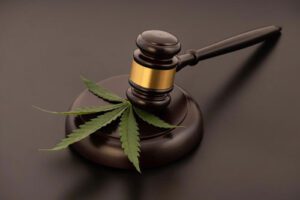 The New Jersey Supreme Court concluded with the following: The Appellate Division’s pre-CREAMMA opinions in McKeon and O’Brien, do not control the analysis of defendants’ circumstances. Neither opinion involved defendants who, as in the cases now before us, had received conditional discharges for conduct that was thereafter legislatively deemed not to have occurred. Nor did McKeon or O’Brien involve legislative reform initiatives akin to those sweepingly embodied in CREAMMA. We should note, however, that in distinguishing those cases, we do not eviscerate in other non-marijuana contexts the “one diversion only” general mandate of N.J.S.A. 2C:43-12(g). That provision continues to apply for such other matters not within CREAMMA’s ambit.
The New Jersey Supreme Court concluded with the following: The Appellate Division’s pre-CREAMMA opinions in McKeon and O’Brien, do not control the analysis of defendants’ circumstances. Neither opinion involved defendants who, as in the cases now before us, had received conditional discharges for conduct that was thereafter legislatively deemed not to have occurred. Nor did McKeon or O’Brien involve legislative reform initiatives akin to those sweepingly embodied in CREAMMA. We should note, however, that in distinguishing those cases, we do not eviscerate in other non-marijuana contexts the “one diversion only” general mandate of N.J.S.A. 2C:43-12(g). That provision continues to apply for such other matters not within CREAMMA’s ambit.
We must make clear that our reversal of the Appellate Division’s decision does not automatically entitle a PTI applicant with a previous marijuana conditional discharge to be admitted into the program. In Gomes’s case, the Middlesex County Prosecutor opposed the PTI application, so the matter must be remanded to the trial court to consider whether the various factors under the PTI statute warrant his admission to the program. When assessing those factors, the prosecutor and the court must ignore the existence and circumstances that produced Gomes’s earlier charges and conditional discharge. In Sheira’s case, the Morris County Prosecutor has already agreed through a joint motion for his admission into PTI, so we remand his case to implement that joint decision, unless Sheira has committed another new offense or his circumstances otherwise have materially changed.
We stress that this is an exceptional situation involving a sweeping new statute that we have endeavored to harmonize sensibly with pre-existing laws. Our decision harmonizing the provisions should not be interpreted as an invitation to disregard statutory language that has been unaltered by new laws. The result we reach in this distinctive case is amply supported by sound interpretive principles.
The judgment of the Appellate Division is reversed, and the two cases are each remanded to the respective trial courts for further proceedings consistent with this opinion. Chief Justice Rabner and Justices Patterson, Solomon, Pierre-Louis, Wainer-Apter, and Fasciale joined in Judge Sabatino’s opinion.
The reason the Court stated that the prior marijuana offenses were deemed “to not have occurred” is because those charges were “sealed.” “Sealing” is distinct from legalization and expungement. Legalized and expunged offenses can still be considered under limited circumstances.
